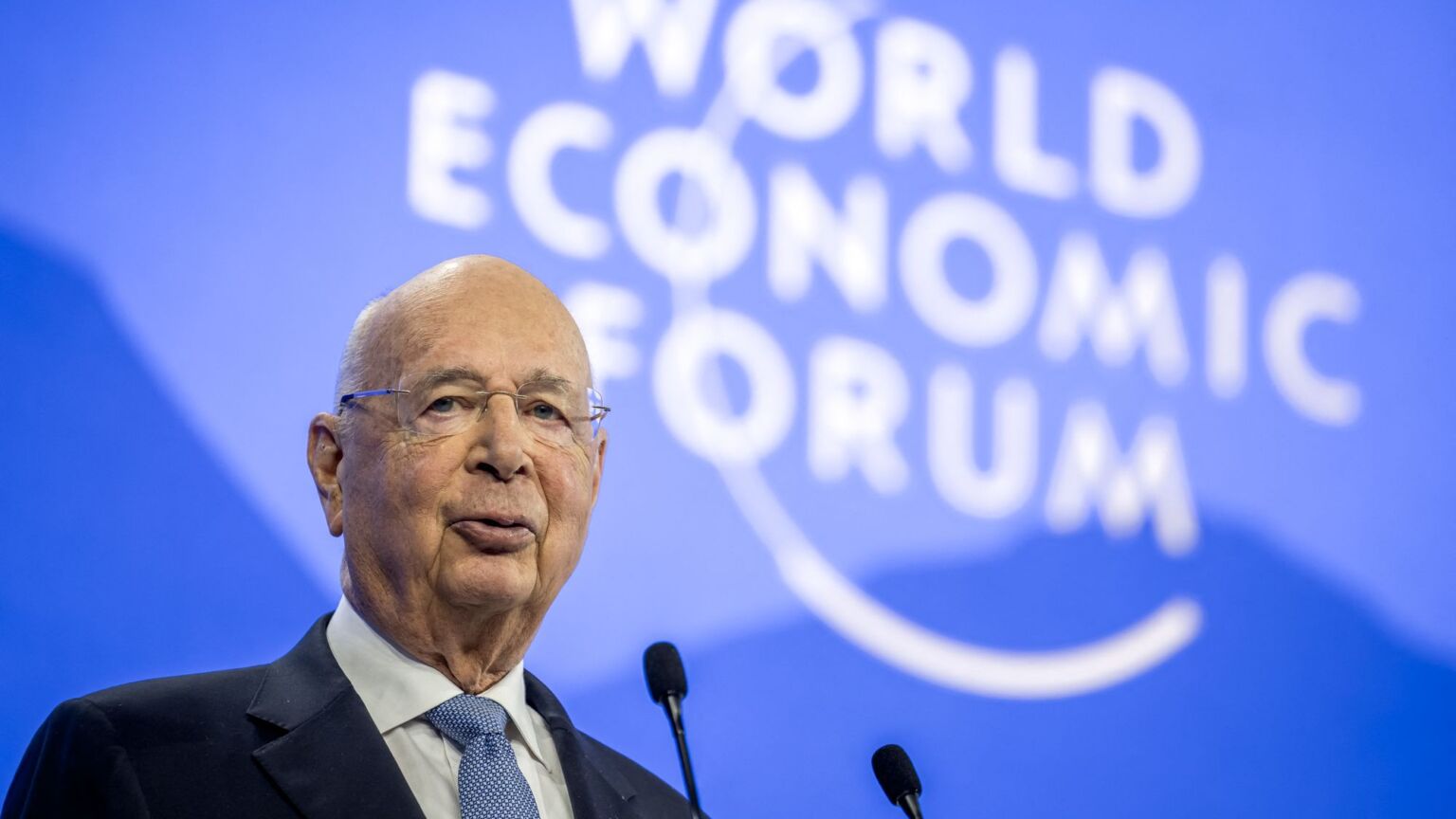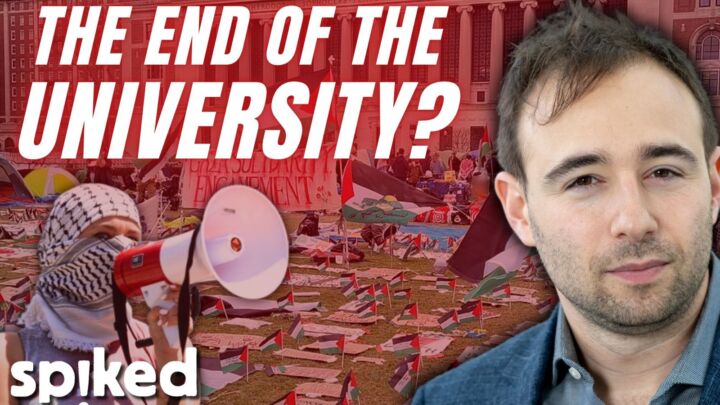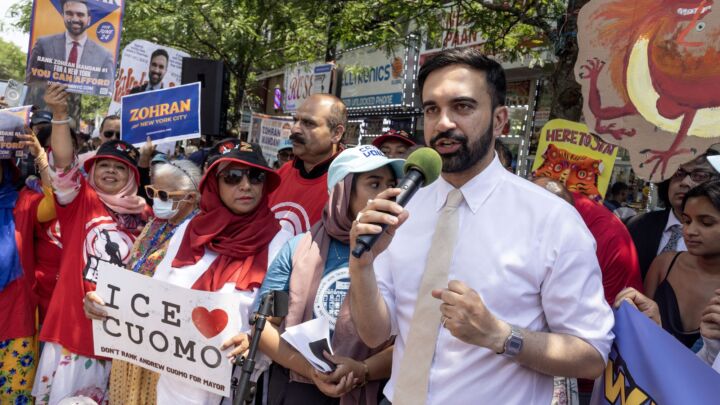Klaus Schwab: the last Davos Man
The high priest of globalism’s resignation confirms the death of the old order.

Want to read spiked ad-free? Become a spiked supporter.
On Easter Monday, World Economic Forum (WEF) founder Klaus Schwab resigned as chair of its board of trustees. He stepped down amid swirling internal allegations that he misused funds and manipulated the WEF’s research to curry favour with governments. We don’t yet know if these charges are true, but manipulation certainly goes with the territory of the WEF. Indeed, manipulating the media and political culture to embrace the outlook of the global elites has always been one of its central aims.
To understand the significance of Schwab’s departure, we need to understand the role he played in the mythology of globalism. Arguably more than any other individual, Schwab personified the quasi-religion of globalism. If he was the pope of the church of globalism, his cardinals were members of the WEF’s board of trustees, including European Central Bank president Christine Lagarde, BlackRock chief executive Larry Fink and former US vice-president Al Gore. These are the Davos Men and Women – members of the super-rich Western oligarchy and their celebrity hangers-on who gather every year at the WEF conference in the Swiss mountain town of Davos.
One of the defining features of Davos Man is that he subscribes to a globalist fantasy, which assumes the nation state is a toothless anachronism. Rather, it is international institutions (like the WEF) that are supposedly best suited to running the world. He blithely assumes that there are no national solutions to the challenges facing the world, only global ones.
In recent years, however, Davos Man has lost his footing. Although the WEF’s public-relations machine continued to churn out high-profile propaganda, behind the scenes it was evident that globalism was gradually unravelling. The WEF never truly got over the global financial crisis of the late 2000s, and was further hit by the eruption of geopolitical conflict – namely, the 2022 Russian invasion of Ukraine. Both events led towards more economic protectionism throughout the world.
The myth of globalisation exploded most spectacularly in 2016 with the UK’s vote to leave the EU, followed by the election of Donald Trump as US president. Schwab certainly didn’t underestimate the significance of the populist challenge. Long before Brexit and Trump, back in 1996, Schwab recognised that ‘a mounting backlash against [globalisation’s] effects, especially in industrial democracies, is threatening a very disruptive impact on economic activity and social stability in many countries’. ‘The mood in these democracies is one of helplessness and anxiety’, he argued, ‘which helps explain the rise of a new brand of populist politicians’. Despite this early warning, Schwab and the WEF would prove hopelessly ill-equipped to weather the coming populist storm.
The WEF’s failure stems from its deep misunderstanding of what actually fuels populism. To this day, the globalists cannot wrap their heads around the fact that a significant section of the Western electorate takes the nation state and national identity seriously. The outlook of the WEF and the oligarchs it hosts is completely detached from the sensibility of people whose lives are rooted in their nation.
Davos Man, on the other hand, is drawn towards multiculturalism and the sacralisation of diversity. As such, he has become invested in promoting identity politics. During the Covid-19 pandemic, the WEF bizarrely claimed that ‘LGBT+ inclusion is the secret to cities’ post-pandemic success’. It also suggested that a ‘strong positive correlation exists between LGBT+ inclusion and economic resilience’. Evidently, flying the rainbow flag had become integral to the identity of Davos Man.
This fantasy – that identity politics and elite cosmopolitanism could restore the legitimacy of globalism – was brutally exposed by Trump’s re-election in 2024. The return of Trump, who had spent his campaign promising to end woke insanity and give a voice to America’s forgotten working classes, did not merely embarrass the WEF – it also raised existential questions about its relevance. As one commentator put it, ‘Less than 48 hours into Trump II, not only are [Davos attendees] struggling for answers, they’re not even clear what the question is’.
Even before the votes were counted in November, the WEF knew its influence was waning. During last year’s WEF in January, it was said that ‘the ghost of Trump stalked the forum’s halls’, after his landslide win in the Republican Iowa caucus – an early indication that he was a strong contender for the presidency. European delegates were particularly anxious about the prospect of Trump 2.0. Their anxieties were summed up by Christine Lagarde, who stated that the prospect of Trump’s re-election was ‘clearly a threat’. She closed the 2024 forum by calling on her colleagues to use ‘defence as the best form of attack’ against Trump.
When the WEF convened once again in Davos this January, Trump’s inauguration, which was happening at the same time, stole the spotlight. Even those in attendance were focussed primarily on the US. As Reuters observed, ‘Davos [became the] world’s most exclusive watch party’. Davos Man could only spectate as the world was being remade in the White House.
Even without the accusations of foul play, it makes sense that Schwab would choose to step down now. His resignation serves as proof that the glory days of Davos are well and truly over. Just about everything the WEF has ever believed in stands exposed as hollow and out of touch. No doubt, there will be a changing of the guard in all international institutions, in a desperate attempt to protect the last remnants of the globalist elites. Whatever happens next remains uncertain. But the future won’t be shaped in Davos any longer.
Frank Furedi is the executive director of the think-tank, MCC-Brussels.
Who funds spiked? You do
We are funded by you. And in this era of cancel culture and advertiser boycotts, we rely on your donations more than ever. Seventy per cent of our revenue comes from our readers’ donations – the vast majority giving just £5 per month. If you make a regular donation – of £5 a month or £50 a year – you can become a and enjoy:
–Ad-free reading
–Exclusive events
–Access to our comments section
It’s the best way to keep spiked going – and growing. Thank you!








Comments
Want to join the conversation?
Only spiked supporters and patrons, who donate regularly to us, can comment on our articles.